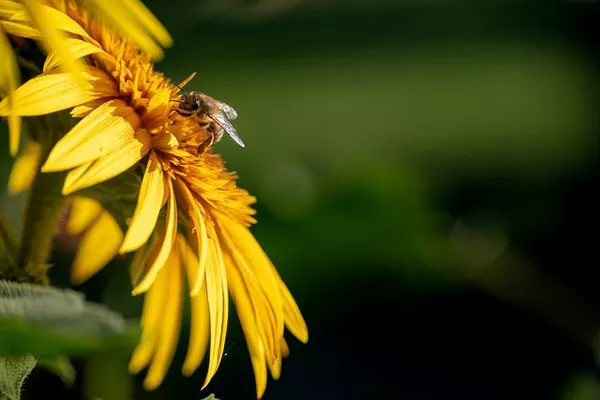Gazing upon the radiant beauty of a sunflower, one cannot help but be captivated by its golden hues and vibrant demeanor. Sunflowers, with their large, cheerful blooms, have intrigued and inspired humanity for centuries, leaving an indelible mark in art, literature, and culture. Beyond their visual appeal, sunflowers hold profound symbolism that transcends time and borders. In this comprehensive article, we embark on a journey to explore the multifaceted meanings of sunflowers, unearthing their cultural significance, historical contexts, and the emotional connections they foster with humanity.
A Sun-Kissed History
The origins of sunflowers trace back to the Americas, where they were cultivated by indigenous tribes for their seeds and oil. The sunflower’s wild beauty and affinity for the sun led native tribes to attribute sacred and spiritual qualities to the flower. The sunflower held particular significance for tribes like the Hopi and Navajo, representing resilience, fertility, and connection to the divine.
In the 16th century, Spanish explorers introduced sunflowers to Europe, where they quickly found favor as ornamental flowers. Van Gogh’s iconic painting, “Sunflowers,” immortalized the flower’s splendor and became synonymous with the artist’s emotional turmoil. As time progressed, sunflowers evolved into cultural symbols with diverse meanings across continents.
Sunflowers in Art and Literature
Throughout history, sunflowers have been muse and subject to countless artists and writers. From the lyrical verses of William Blake to the vivid canvases of Claude Monet, sunflowers have graced art with their vivacious presence, evoking joy, hope, and admiration.
Literary giants such as Emily Dickinson and Robert Frost have woven sunflowers into their verses, invoking themes of nature’s beauty and the fleeting essence of life. The flower’s symbolism as a harbinger of warmth and happiness has inspired writers to craft narratives that resonate with readers worldwide.
Sunflowers in Cultural Traditions
Across cultures and civilizations, sunflowers have found a place of honor in religious and spiritual rituals. In Chinese culture, sunflowers symbolize longevity, good luck, and loyalty, making them popular gifts for auspicious occasions. In Native American traditions, sunflowers embody spiritual enlightenment and growth, representing a connection to the life-giving sun.
Moreover, the sunflower’s association with the sun and its ability to track the sun’s movement throughout the day has earned it a symbol of devotion and loyalty. It represents steadfast love and unwavering dedication to a higher power or a loved one.
Sunflowers in Mythology and Folklore
Sunflowers have also found a place in mythology and folklore. In Greek mythology, the sunflower is associated with the story of Clytie, a water nymph who was transformed into a sunflower, forever gazing at the sun as a symbol of her unrequited love for Apollo.
In Slavic folklore, sunflowers are considered symbols of fertility and prosperity. They were planted around homes to ward off evil spirits and protect the household from harm.
Sunflowers and Emotional Significance
Beyond their cultural and historical significance, sunflowers hold deep emotional meaning for individuals. The vibrant blooms evoke feelings of joy, happiness, and optimism. Their bright and sunny appearance can uplift spirits, making them ideal gifts for celebrating milestones or expressing love and appreciation.
Sunflowers are also associated with the concept of turning towards the light, both metaphorically and physically. They serve as a reminder to seek positivity and personal growth even in challenging circumstances, symbolizing resilience and determination.
Sunflowers in Contemporary Contexts
In modern times, sunflowers continue to be cherished for their symbolic value. The flower’s image graces various commercial products, from fashion to home décor, embracing its universal appeal and emotional resonance. Sunflowers are also used in therapeutic settings to promote emotional well-being and relaxation.
Moreover, the sunflower’s environmental significance cannot be ignored. As they are known for their ability to absorb harmful toxins and pollutants from the soil, sunflowers have been used in phytoremediation projects to cleanse contaminated lands.
Conclusion:
In this profound exploration of sunflower symbolism, we have traversed the annals of history, art, literature, and culture to understand the multifaceted significance of this golden gift from nature. From its spiritual connections to its role in mythologies and folklore, the sunflower’s radiant presence has left an indelible mark on humanity’s collective consciousness.
With its ability to evoke joy, optimism, and resilience, the sunflower continues to hold a special place in our hearts and cultural traditions. As we admire its vibrant beauty, let us be reminded of the profound meanings it carries and the emotional connections it fosters with each one of us. In the grand tapestry of life, the sunflower remains a symbol of hope, devotion, and the enduring power of nature’s golden touch.


